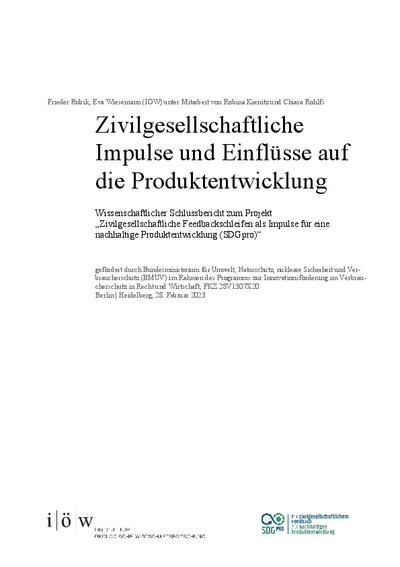Civil society impulses and influences on product development Final scientific report on the project "Civil society feedback loops as impulses for sustainable product development (SDGpro)"
Through feedback and change requests, for example on potentially environmentally harmful substances or the reparability of products, consumers can encourage companies to design more sustainable products. The report examines how civil society actors can activate citizens for this purpose. In doing so, it focuses on different forms and types of civil society-initiated and organized bundling of experience knowledge from product search and use. The project also analyzed how this knowledge can be passed on to manufacturers. The report is based on the working hypothesis that valuable information can be generated for manufacturers through these information transmissions, which can provide guidelines (in the sense of eco-design) for a stronger orientation towards sustainability in product development. The scope of these information transmissions and their potential to have an impact below the level of state regulatory intervention was analyzed. The report is based on workshops and interviews with companies and associations as well as a company survey. The report concludes with recommendations to the civil society actors involved, to companies and the economy as well as to politics. These aim to improve such civil society impulses and to increase their potential impact.



